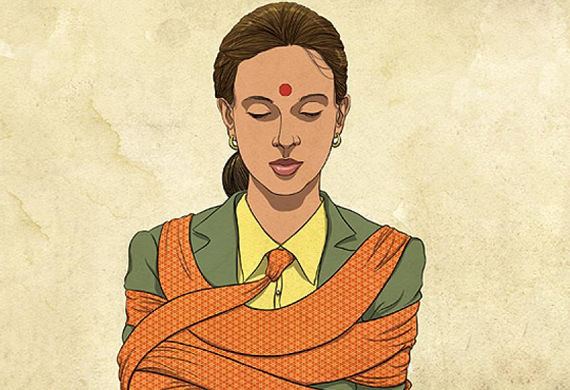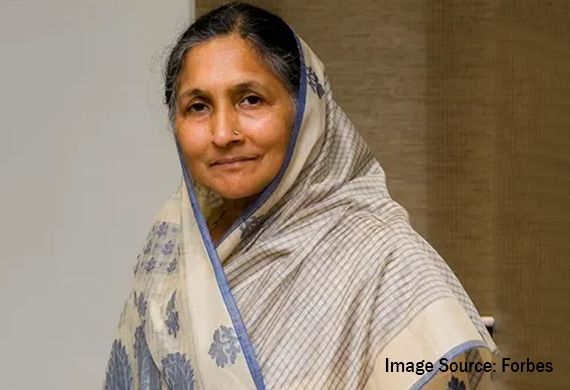
Women Entrepreneurs' Resilience in Times of Covid-19
By: Navyasri, Content Writer, Women Entrepreneur
The Covid-19 problem in India has created serious challenges to small and expanding enterprises in the country for about a year and a quarter. The pandemic has not only exacerbating pre-existing gender disparities but also undermined significant advancements made in the women entrepreneurship ecosystem in recent decades. Due to disruptions in supply chains, the pandemic has impacted self-employed women, who account for nearly half of all working women in India. Furthermore, non-payment of past wages and pending arrears has made these women and their families vulnerable to economic shocks. The pandemic's primary economic impact on women entrepreneurs was reduced customer demand, delivery constraints, a crowded online marketplace, and altered customer preferences.
GIZ's Project Her&Now recently released a detailed report titled “Women Entrepreneurs’ Resilience in Times of Covid-19” in order to shed light on the pandemic's unique and disproportionate impact on women-led businesses, as well as the plethora of operational challenges they faced during and after the first wave of the Covid-19 pandemic, as well as identify, understand, and discuss the measures they took to rebuild better.
The ongoing project ‘Her&Now – Empowering Women Entrepreneurs' is being carried out by Deutsche GesellschaftfürInternationaleZusammenarbeit (GIZ) GmbH on behalf of the German Federal Ministry for Economic Cooperation and Development (BMZ) and in collaboration with the Indian Ministry of Skill Development and Entrepreneurship (MSDE). The organization's self-declared goal is to provide effective solutions that provide people with better opportunities and improve their living conditions in the long run.
Her&Now plans to share the study to various players in the women's entrepreneurial ecosystem after its official launch.
The findings of the Her&Now, GIZ report are based on a study conducted in December 2020. The data for the study was compiled based on interviews with 211 women entrepreneurs from Rajasthan, India's North Eastern Region (NER), and Telangana, who operate in a variety of industries.
Speaking about the report, Ullas Marar, Project Head, Her&Now says, “Given that the pandemic is far from being over and there are high possibilities we may have to tackle a third wave and subsequent waves in the near future, it has become imperative to understand the ways in which women-led enterprises (as well as the women entrepreneurs themselves) responded to the pandemic when it began because we believe a lot of lessons and learnings lie there. Keeping that in mind, we have prepared, and are now glad to release the report — “Women Entrepreneurs’ Resilience in Times of Covid-19” – which we believe will be of great help for the key stakeholders in deriving best practices, learnings and opportunities for the wider ecosystem of women entrepreneurship in India.”
Covid-19's impact on female entrepreneurs, women entrepreneurs taking proactive measures and Conclusion are the three main sections on which report highlights.
Covid-19's impact on female entrepreneurs: This section demonstrates that in the aftermath of the pandemic, most women entrepreneurs' customer demand was the most affected, followed by challenges with working capital and operational processes. Several entrepreneurs also had trouble getting into the market, keeping employees, and getting supplies on time. A few of the respondents reported negative impacts relating to inventory.
Women entrepreneurs taking proactive measures: Efforts to market digitally, diversifying distribution channels, adjusting the product/service offering, re-adapting operations or revising the financial model, investing in business development, optimising the supply chain, and revising pricing strategies, among other things, are the key measures that women entrepreneurs took to counter operational disruptions.
Many of the questioned entrepreneurs were able to turn the Covid-19-induced problems in their business environment into opportunities by implementing a few or all of these steps, according to the research.
Conclusion: This part provides six key conclusions based from the report's findings, as well as an attempt to describe the best path forward for India's women's entrepreneurship ecosystem.
Due to the convenience of transaction and high use of customers, social media has proven to be quite beneficial for selling items or services, with Instagram, Facebook, and WhatsApp becoming the most popular platforms.
Aside from social media, other female entrepreneurs established an online store, allowing them to serve customers in a more structured manner by providing a clear overview of the product variety, online payment alternatives, and terms and conditions transparency.
Collaborations with e-commerce platforms were another option for maintaining and expanding distribution networks, according to the research, because they allowed businesses to expand their reach, serve clients across India, and require less technical knowledge than having a private website.
Women-led businesses in rural areas, in contrast, have been known to be resilient in the face of economic shocks in the past. However, India's long-drawn lockdown was unprecedented, and little is known about the impact of a complete closure, particularly when women are burdened with increased unpaid care work and limited cash reserves at the household and enterprise levels.
In May 2020, the COVID-19 stimulus package announced special measures for the MSME sector. The RBI, too, provided assistance by fortifying financial institutions9 that lent to these businesses and injected much-needed capital into the cash-strapped sector10. Promisingly, Many of these COVID-19 policies have been carried through into the 2021 budget and enhanced to better support the MSME sector.






